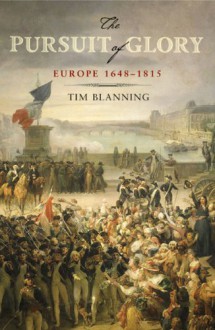
This is a thorough, engaging and informative history: it takes on a lot (more than 150 years of history in a whole slew of countries, in 677 pages), and does an excellent job with it, offering interesting detail, analysis and quotations by contemporary observers.
Interestingly, the book is organized topically rather than chronologically or geographically. The first section discusses transportation, population and daily life, the economy, agriculture and the status and rebellions of peasants. The second discusses rulers and governments in various countries and the overall trends under their reigns, as well as political trends and reforms. (Blanning seems to incline toward a "great man" view of history.) The third is about religion, royal courts, art and the Enlightenment. And the final section is all about wars and diplomacy. It’s a successful organization that allows the author to delve into each topic, observing how it manifested in various countries, without getting too caught up in the “traditional” history of battles and so on (though after reading the final section it was hard to imagine how anyone managed to get anything else done with all this constant fighting!). He's much more focused on drawing the meaning out of history than just telling us what happened when.
Unsurprisingly given the number of countries in Europe, all do not get equal treatment. There’s a lot about France, England, the Holy Roman Empire, the Habsburg Monarchy, Prussia and Russia. There’s some information about Spain, Italy, and the Netherlands. There’s very little about Scandanavia, Switzerland, Portugal, Denmark or Poland, and the part of Europe under Ottoman rule at the time might as well not have existed.
My real complaint about the book is that it doesn’t cite its sources; I realize this is a synthesis, and sources are sometimes referenced in the text itself, but this is still bad form in nonfictional writing.
Overall though, a very informative book that manages to relate large amounts of history through engaging narrative and well-reasoned argument. I recommend it.

 Log in with Facebook
Log in with Facebook 









